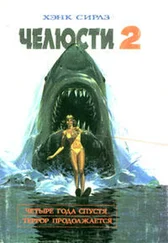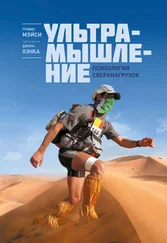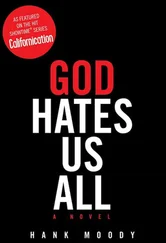I didn’t know how to choose, so I closed my eyes and selected something at random.
A shock of cold breeze hit my face, and I opened my eyes to find myself on the top of a snow-covered mountain. The sky was pure blue with only a few wisps of cirrus clouds in the upper atmosphere, and I could see pristine, snow-covered nature for miles in every direction. I realized I hadn’t been breathing, so I sucked in the cool air and felt it hit my lungs with a refreshing shock.
And then I realized I was moving, just a little bit, and I looked down to see that I was wearing skis.
“Oh shit,” I said out loud.
I was picking up speed, not sure how to slow myself down or turn away from going straight downhill. “Shit!” The hill in front of me looked shockingly steep, and the more I looked at it, the more I went toward it.
I tried to lean forward to go to my hands and knees, but that just sped me up and made me wobble. My skis began tracking away from each other and then my legs separated in a split and my hands and face slammed down into the snow. The cold and the pain bit into me. I tucked into a ball and tumbled and rolled until I finally came to a stop, and I could feel bits of snow melting against my skin where it had snuck down my back or up my sleeves.
“How is this possible?” I said out loud. There was no one to hear, so I just shouted, “WOOOOOOO!” and the noise traveled down the hill. I wanted to try a different sandbox and new experiences. I wanted to do it all day. I wanted to do it forever, and so would everyone else.
I didn’t try to ski anymore. I just sat on the mountain, breathing in the startling air and staring out at the perfect beauty of a world that was not real.
These sandboxes were not experiences, they were constructed spaces where you could be yourself and do things yourself.
Finally, I exited the sandbox and the Premium Space and found myself alone in the room.
I checked my watch. Only fifty minutes had passed.
The version of the Space we had at Altus didn’t have price tags, so my first thought was wondering whether and how they were going to monetize it. Naive, I know, but I thought maybe only certain kinds of content would be behind a paywall. Only entertainment or only porn or something. I think everyone’s second thought upon entering the Premium Space (after Holy shit, this is real ) was Holy shit … porn.
I couldn’t keep focused—it was just too big. I imagine this must have been what it was like when the internet was first becoming a thing. Everyone knew everything would change, but no one had any idea how. What would society look like after ten years of Altus? How powerful would this company become? What would it do to our brains? What would it do with our brains? And even if all of this was perfect and not dangerous and carefully done, what about people who couldn’t access it, whether they were physically unable, like Peanut, or just couldn’t afford a headset? This was going to fundamentally change how people learned, and people with access would be able to learn very fast.
We’ve got two competing ideas inside of our heads: first, that all people have the same value because otherwise we’re immoral monsters, and then second, that some people are more valuable because they have access to more money or skills or knowledge. I’m not saying this is good; I’m just saying it’s a thing.
The only real way to bring these two ideas together is to give everyone an equal shot. That is, of course, impossible in like a billion different ways. But we try for it. Start out with public education for everyone. Try to make the quality of that education equal. Expand that to higher education. Take care of medical expenses so that isn’t dragging people down. Provide a safety net that prevents people from going to prison or starving because they don’t have enough money.
The Altus Space, it immediately seemed to me, could be a force that shared value widely and expanded access to opportunity. But it could also be a force that gave more opportunity to those who already had access. And if the company was headed for a trillion-dollar valuation, it had likely already chosen the worse path.
So that’s what I was thinking about when Peter Petrawicki walked back into the room and asked, “So what do you think?”
I answered honestly, “I think it’s going to change everything.”
“You’re definitely not wrong about that,” he said with all the confidence of a newly minted billionaire.
“I also couldn’t help thinking about how the hell it was done. I mean, I get some of it, I’ve been working on some of it. But we’re so far away from this—” I gestured to the headset. “And then it also seems like you’re building intricate sandboxes for playing around in, and I also want to know how the hell you’re doing that!”
I was legitimately curious about all of this, and felt all of the emotions of wonder and fascination I was showing him. I just tried to do everything I could to forget who he was and hide my worry.
“Well, that’s exactly what I want to show you.”
We left the little room behind, and then Peter and I walked farther down the empty hallway. There were photographs on the walls. I tried to look at some of them, but they were just landscapes I didn’t recognize.
He knocked quietly on one of the doors, and it opened to show a warm-looking library with some healthy-looking potted plants and a comfortable-looking leather chair. Sitting in that chair was a young woman, a little older than me, with bold eyebrows cresting over hazel eyes. Her most striking feature was her completely bald head, on which had been stuck a collection of electrodes.
“Aletha …” Peter walked up to the woman with his hand out. She shook it. “This is Miranda Beckwith. Miranda, this is Aletha Diaz.”
“Hi, Miranda,” she said, her English slightly accented. “Sorry for not getting up. It’s kinda a pain in the ass to do it once I get all hooked up.”
“No,” I choked out, “don’t worry about it.”
“I wanted to bring you here so you could see how this works firsthand. Aletha, what would you say your job is?”
“Basically, I read. I love reading anyway, and now I’m getting paid a lot of money to do it.”
“And while Aletha reads, we read Aletha. Miranda, it’s about time you understood what we really do here.”
I thought he was just going to keep going, but apparently he needed my approval so I said, “Yes … please.”
“When Carl came to our world, two big things changed. First, I believe when April pressed the iodine to Hollywood Carl, she triggered a change to her own mind that quickly spread to brains all over the world. But it never made sense to people studying this stuff. How was that alteration transmitted and, more than that, how was the Dream stored? It was the same for everyone, but it wasn’t in our minds before that. And it was massive! Imagine how much storage space something that large and detailed would require!”
None of this was new information for me, or anyone really, but it felt impolite to interrupt.
“A few people who were not happy about the Dream started to investigate it deeply, and something they discovered was that, if two people went to an area of the Dream that was completely unexplored at the same time, they would actually experience it slightly differently. But then, in the next twenty-four hours, a stable version of their experience would be settled on, and both would see the exact same thing from then on.
“That’s when we realized that the Dream was not only something Carl created. It was a framework, and we were filling in the details. And THAT,” he almost yelled, “was the second thing.”
I disagreed with his version of the story a bit, it hadn’t just been people who weren’t happy about the Dream who had figured this out, but I didn’t need to get into it with him, so I just said, “Yeah. People have known about that for a long time.”
Читать дальше












